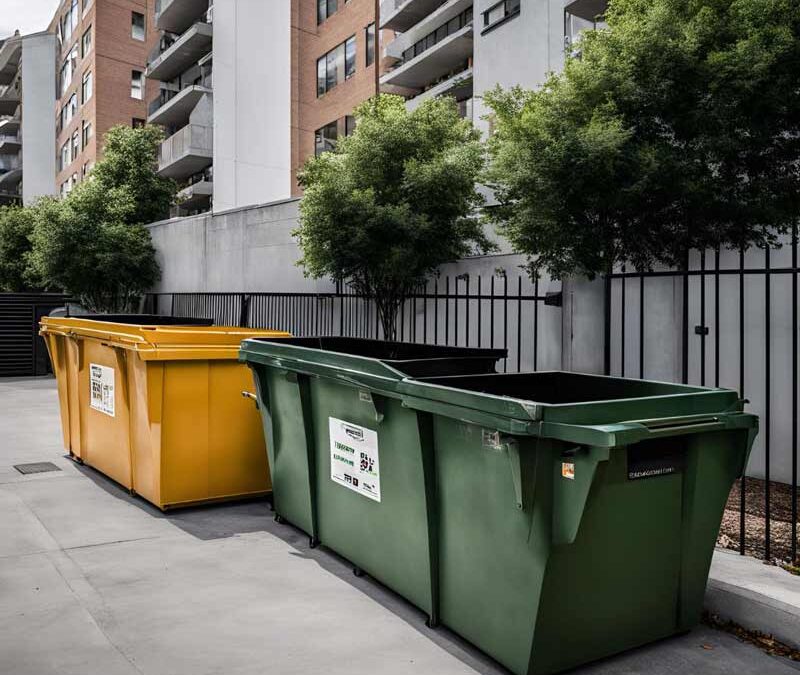When embarking on a large project, whether it’s a home renovation, yard cleanup, or major decluttering effort, knowing how to select the right dumpster size is crucial. An appropriately sized dumpster can save you money, time, and hassle.
Understanding Your Project’s Needs
Before renting a dumpster, assess the scope and scale of your project:
- Small Projects: Include minor home remodeling, decluttering tasks, and yard cleanups.
- Medium Projects: Encompass larger home renovations, major declutter efforts, or medium-sized commercial cleanouts.
- Large Projects: Typically involve extensive home renovations, construction projects, or large-scale commercial cleanouts.
Understanding your project’s needs will help you choose the right dumpster size.
Available Dumpster Sizes
Dumpsters come in various sizes measured in cubic yards. Here are common sizes and their typical uses:
|
Dumpster Size |
Capacity (cubic yards) |
Ideal For |
|
10-yard |
10 cubic yards |
Small remodels, garage cleanouts |
|
20-yard |
20 cubic yards |
Large home renovations, roofing |
|
30-yard |
30 cubic yards |
Major construction, large cleanouts |
|
40-yard |
40 cubic yards |
Massive projects, large commercial |
Consider the type and volume of waste you’ll generate when selecting a dumpster size.
Estimating Waste Volume
Estimating the amount of waste your project will produce can be challenging. Here are some tips:
- Home Renovation:
- A kitchen remodel might fill a 20-yard dumpster.
- Bathroom renovations often require a 10-yard dumpster.
- Yard Cleanup:
- Tree removals, large yard debris need about a 20-yard dumpster.
- Miscellaneous yard debris can often fit in a 10-yard dumpster.
- Decluttering:
- Whole-house decluttering might need a 30-yard dumpster.
- Garage cleanouts or basement decluttering usually fit in a 10-yard dumpster.
Determining Rental Duration
How long you need the dumpster is another critical factor. Different projects have different timelines:
- Short-Term Projects: Minor cleanups and small renovations require only a dumpster for a few days.
- Extended Projects: Larger renovations or construction might require a week or more rental period.
Calculate the projected timeframe before renting to avoid additional charges.
Cost Considerations
Dumpster rental costs can vary based on several factors:
- Size of the Dumpster: Larger dumpsters cost more than smaller ones.
- Rental Duration: Longer rental periods result in higher costs.
- Type of Waste: Hazardous materials may incur additional fees.
- Location: Local disposal fees and transport costs can impact pricing.
Budgeting carefully for these expenses will help manage overall project costs.
Eco-Friendly Disposal Practices
Reducing the environmental impact of your project should also be a priority. Here are some eco-friendly disposal tips:
- Recycle: Separate recyclables like metal, paper, and certain plastics.
- Donate: Items in good condition can be donated instead of trashed.
- Proper Hazardous Waste Handling: Ensure materials like paint, batteries, and electronics are disposed of appropriately.
Additional Tips for a Smooth Rental Experience
To ensure a hassle-free dumpster rental experience:
- Plan Ahead: Schedule the rental in advance to ensure availability.
- Select a Suitable Drop-off Location: Ensure there’s enough space for the dumpster at your site.
- Follow Loading Guidelines: Avoid overfilling and evenly distribute waste to prevent overweight charges.
Choosing an excellent dumpster rental service can make a significant difference in the efficiency of your cleanup project. For example, getting services for dumpster rental Las Vegas could cater to your specific needs if you’re in that region.
Wrapping Up
Selecting the right dumpster size involves assessing the scope of your project, estimating waste volume, considering rental duration, and planning for costs. By following these guidelines, you can ensure a smooth and efficient cleanup process for any project.

